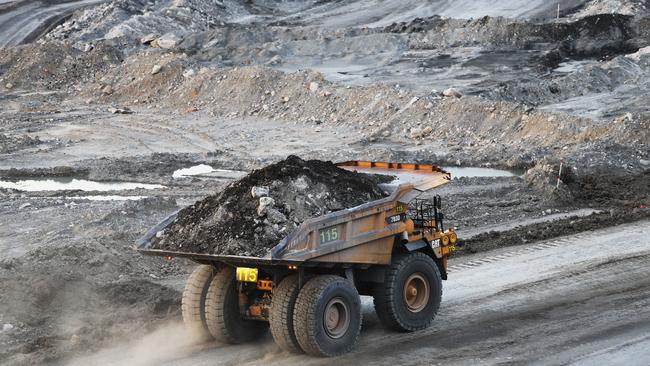Climate pledges put heat on exports
A decision by Japan to nearly double its target for cutting carbon emissions by 2030 and China’s plan to start phasing down coal consumption by 2026 may pile pressure on two of Australia’s key commodity exports.

Business
Don't miss out on the headlines from Business. Followed categories will be added to My News.
A decision by Japan to nearly double its target for cutting carbon emissions by 2030 and China’s plan to start phasing down coal consumption by 2026 may pile pressure on two of Australia’s key commodity exports, according to green groups.
The ambition by the two Asian nations to more rapidly decarbonise was outlined at the Biden climate summit, signalling a strengthening shift towards greater action to tackle climate change.
Japan will now aim for a 46 per cent cut by the end of this decade compared with its previous 26 per cent goal, which was based on 2013 emission levels. China will limit any increase in coal in the period through to 2025 at which point its coal consumption will reach a peak.
President Joe Biden has also committed the US to a target of a 50-52 per cent cut compared with 2005 — double the size of Australia’s target.
“In 2019-20, Japan accounted for $46bn of Australia’s resources exports, including iron ore, coal and gas. Doubling their target has huge repercussions locally,” the Australasian Centre for Corporate Responsibility said in reference to Japan’s new goal.
Scott Morrison said he was proud of what Australia had achieved in reducing emissions after Mr Biden told the 40 countries gathered at a virtual climate summit overnight that there was a “moral imperative” to take action.
Japan, China and South Korea have already made plans for net zero ambition, seen as threatening demand for two of Australia’s biggest export earners. The three countries combined buy two-thirds of Australia’s coal and three-quarters of LNG exports.
South Korea and Japan’s goals have been described as “hugely aspirational and daunting” by consultancy Wood Mackenzie given both rely on hydrocarbons for 80 per cent of their primary energy supply. That will have to halve to a 40 per cent share by 2050 for the economies to meet their targets.
The Investor Group on Climate Change said there was now a global race to attract investment in net zero emissions industries and infrastructure.
“Australia and New Zealand risk falling behind in the global race to attract private capital investment in net zero emissions industries and infrastructure after President Biden committed the United States to reduce its greenhouse gas emissions by 50-52 per cent from 2005 levels by 2030,” the IGCC said.
IGCC analysis “shows the new US target is now one of the strongest emissions reduction commitments amid the G20, only slightly behind what has been adopted by the UK and EU nations. Overnight Japan and Canada, key trading partners and allies of Australia and New Zealand, also strengthened their emissions reduction goals for the end of the decade.”
Australia laid out a “technology-led” plan this week including hydrogen and carbon capture and storage initiatives, but critics say more needs to be done for Australia to reduce its pollution levels and wean itself off fossil fuels.
Seven hydrogen hubs will be created under the Morrison government’s blueprint spanning Western Australia’s Pilbara through the industrial heartlands of NSW’s Hunter Valley, Victoria’s Latrobe Valley and South Australia’s Whyalla. The hubs aim to crystallise billions of dollars of investment pledged by high profile ASX-listed companies, private investors and some of the biggest international energy names.
Carbon capture and storage has also attracted funding as part of the government package.
Originally published as Climate pledges put heat on exports



